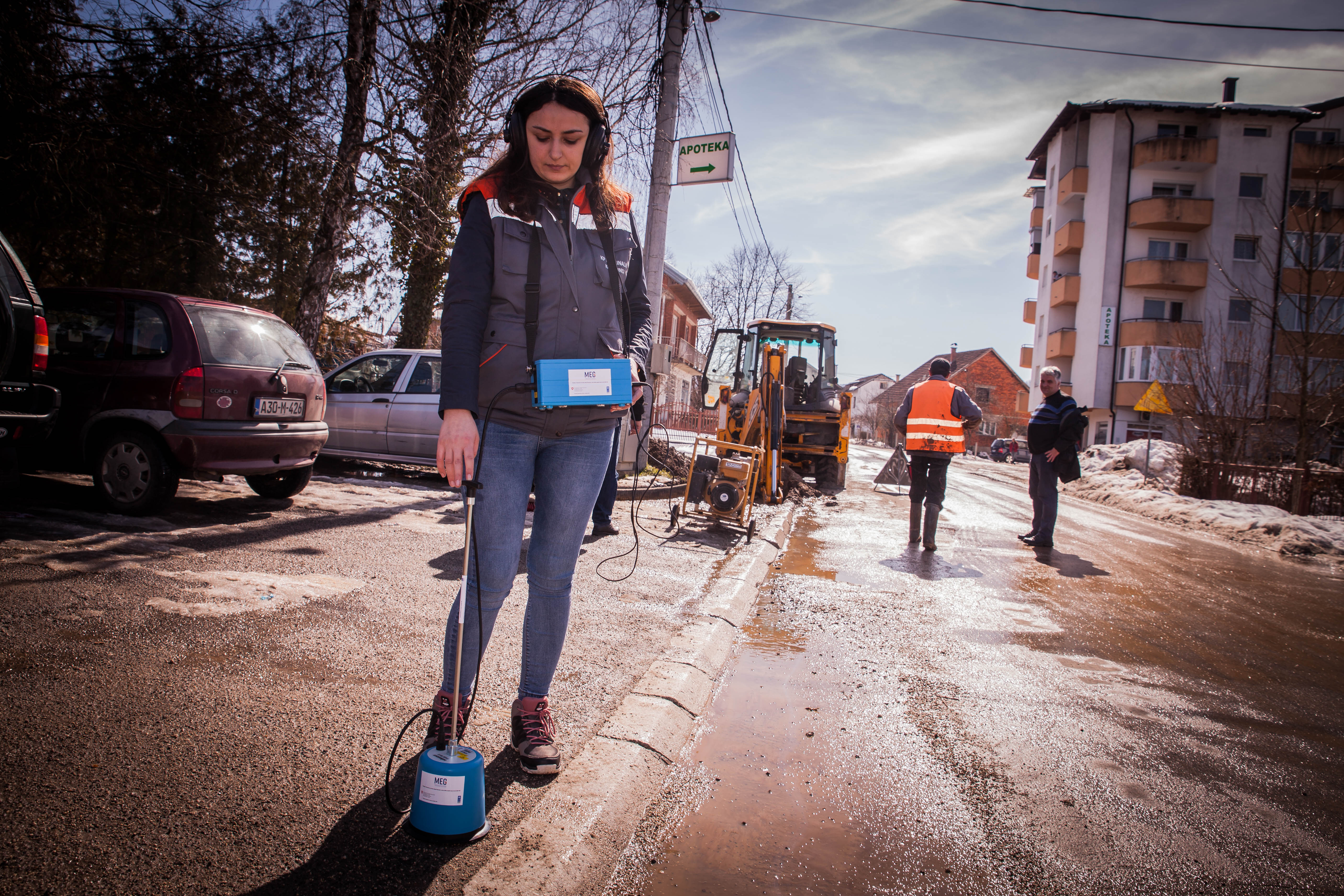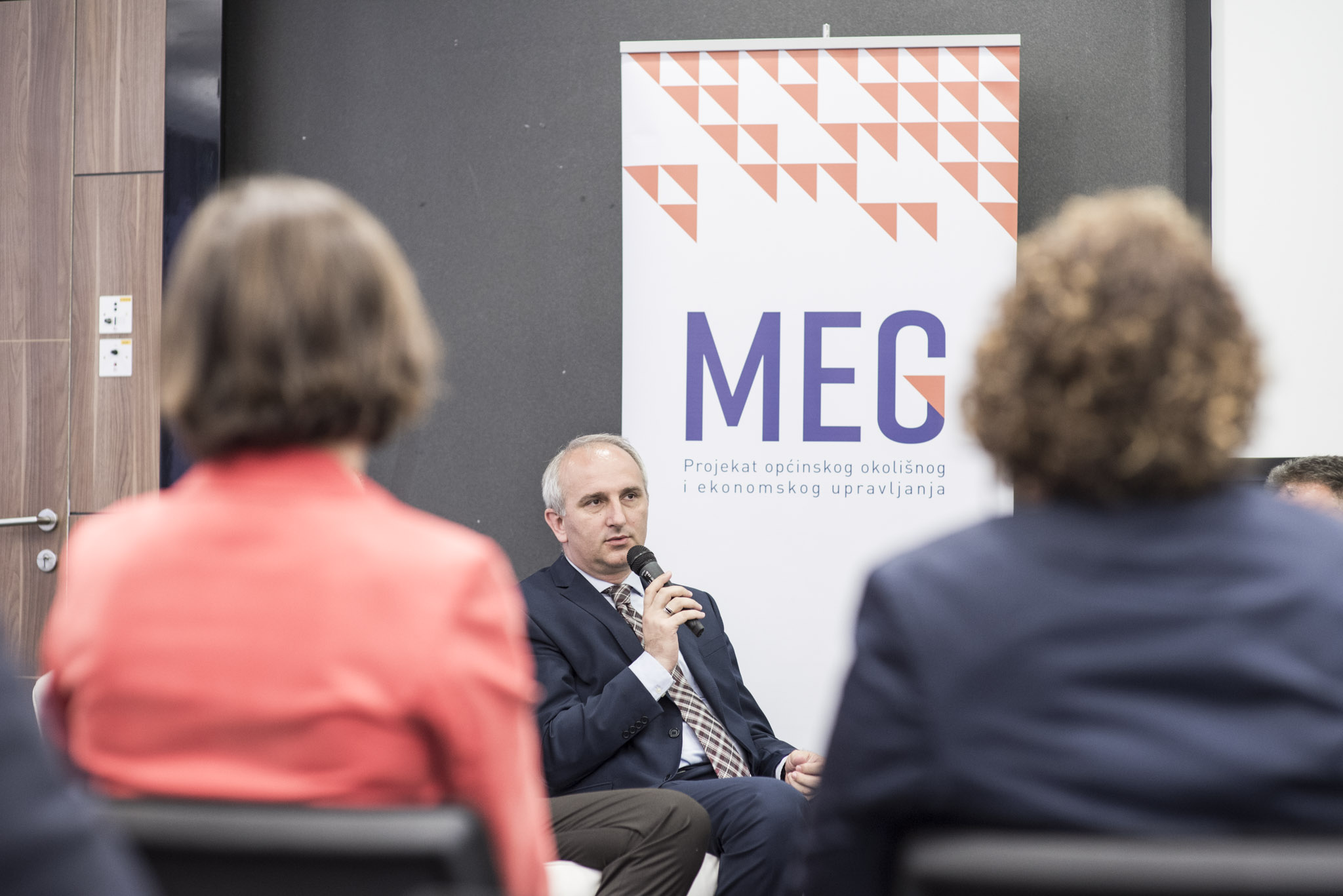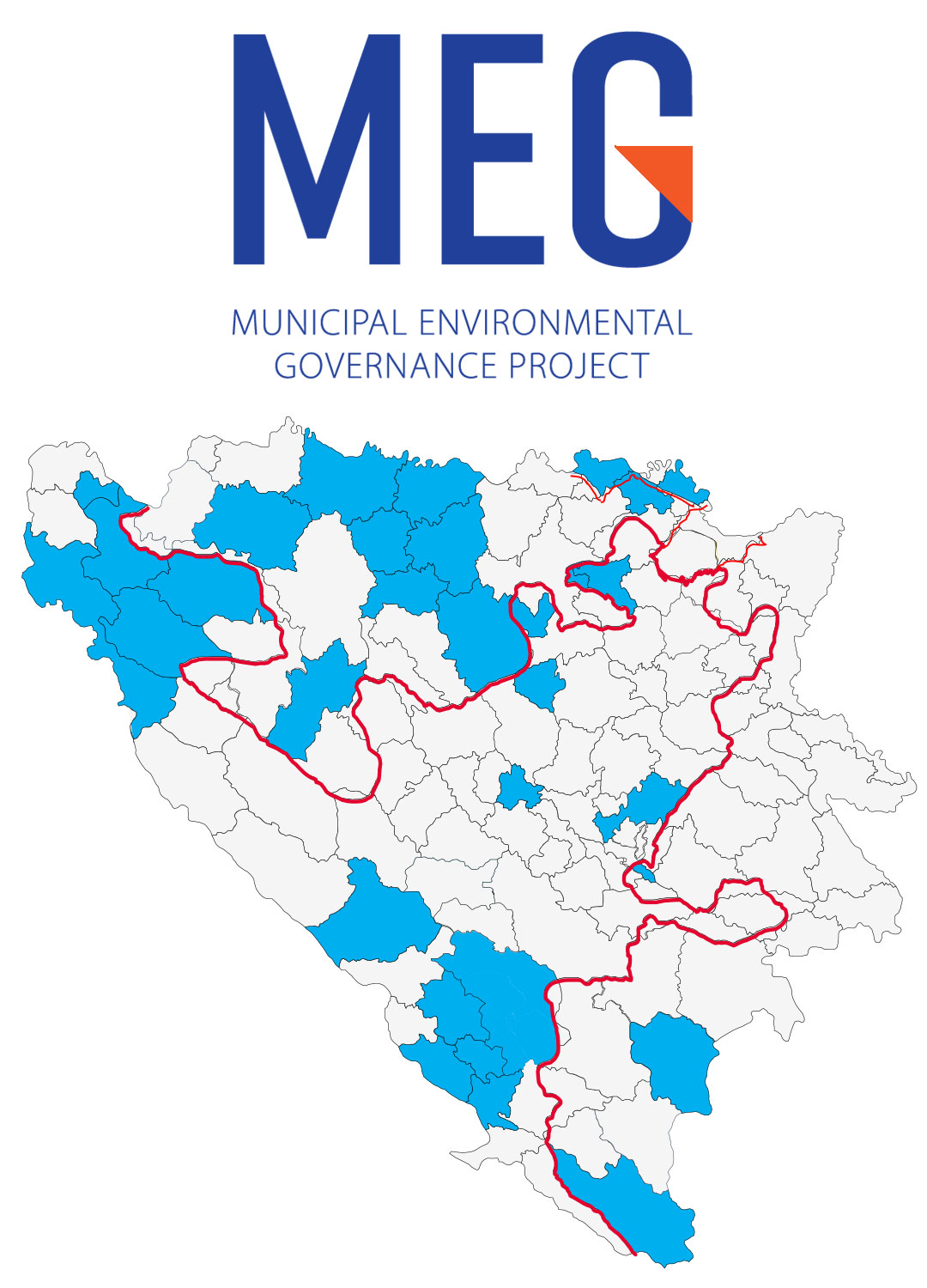Municipal Environmental Governance
MEG II Project
Local governments have a critical role in the affirmation and further application of more effective, efficient, and inclusive local governance based on a results-oriented approach. The MEG II project is designed as a strategic local governance intervention, uniquely positioned to tackle systemic improvement of the local governance system, utilizing a results-oriented approach as its main vehicle.
Overall goal of the MEG II project
is to contribute to the democratisation of local governance in Bosnia and Herzegovina and more equitable, effective and efficient public services for the citizens, particularly water supply and wastewater management services.
The MEG II project capitalises and seeks to scale up the positive experiences and models both in the area of local governance and water supply and wastewater management services, towards both policy and system change. It is strategically positioned to complement and amplify the broader efforts of governments and representatives from the international community (the WB, the EU, the EIB, together with the Government of Switzerland and Sweden) to reform and modernise water supply and waste water management services in Bosnia and Herzegovina. It is an integral part of a wider set of reform and investment interventions in Bosnia and Herzegovina guided by the Joint vision for advancing the water supply and wastewater management services reform in Bosnia and Herzegovina 2021-2028.
This paves the way for attracting large-scale infrastructure investments at the local level based on the improved policy and regulatory frameworks, as well as local governments’ capabilities to manage the investments in water supply and wastewater infrastructure sustainably and effectively.

Building on empirical experiences and lessons learned from the application of the performance-based financing (PMS) mechanism in 18 partner local governments during the first phase, the MEG project designed and developed a first-of-its-kind governance performance monitoring tool in the country, which comprises a set of comparable core governance standards, based on shared values and principles, and measured through tangible performance indicators that allow for a harmonized and standardized evaluation of local governments’ work across major governance areas.
Together with its 29 core partner local governments, private sector actors, relevant cantonal, entity and state level institutions, the MEG II project will facilitate a country-wide consultation in an effort to reach an agreement on the final version of the governance performance monitoring tool. Once agreed upon by local governments, and supported by the AMCs, and eventually endorsed by relevant entity ministries, this document will become a benchmarking and self-advancing instrument, formalised through local legal frameworks.
Focus will also be placed on the water supply and wastewater management services, as a complementary policy environment that will stimulate improved local service delivery and performance of local governments and water utilities. Efforts under this output are designed to contribute to the “Joint vision for advancing the water supply and wastewater management services reform in Bosnia and Herzegovina”, representing a common platform for coordinated reform in the sector.
The MEG II project will also facilitate the promotion and awareness raising at the local level, and formal commitment by partner local governments to apply the governance performance monitoring tool performance standards and perform an entry-point evaluation and target setting. These initial efforts will be informed by successful MEG I experiences, leading towards successful introduction of performance management systems in local governments.

Through the implementation of the MEG II project, the following main outcomes are expected:
- Outcome 1: State, entity and cantonal governments set in place a more conducive policy and regulatory environment that affirms result-oriented local governance and improved water supply and wastewater management services.
The MEG II project will will facilitate wide and inclusive policy dialogue with two main entry points: i) local government policy, strategic and financial framework, as well as ii) policy, regulatory and institutional framework for water supply and wastewater management services. Capabilities of multiple institutional stakeholders in the water sector will be enhanced and regulatory framework for water supply and wastewater management services will be enhanced, alongside functional cross-governmental coordination mechanisms that discuss and propose reform actions in the sector, as per the EU directives and national commitments.
- Outcome 2: Local governments improve their performance, are more accountable, inclusive and gender-responsive, and provide high quality services, in particular in the water sector.
Building on proven experiences from the MEG I and using the GLG Framework’s vision and standards, the MEG II project will support the establishment of performance management systems in partner local governments. Local administrations will advance their development management capabilities, guided by the performance standards encompassed within the GLG Framework. Local governments’ efforts to improve local democracy and local services will be accelerated by the use of technology and digital solutions. Specifically, the Project assistance will result in more democratic, people-centred, gender sensitive, transparent, effective and efficient local governments, simultaneously improving inclusive public service delivery - particularly in the area of water supply and wastewater management, as well as empower and stimulate citizens to engage more actively in decision-making and local affairs
- Outcome 3: Citizens, including the most vulnerable, benefit from improved water supply and wastewater management services provided in a more efficient, accountable, and sustainable manner.
The MEG II project will will scale up successful water utility governance approaches to enhance capacities of local governments for more effective planning, management and delivery of water supply and wastewater management services at the local level. Integral to this support are improved regulatory frameworks for water supply and wastewater management services in both urban and rural areas within local governments. Support will be combined with affirming local regulatory frameworks that enable operational autonomy, performance-oriented legislative oversight, optimise organizational structure and staffing, and introduce sustainable water tariff-setting policy.

Geographic coverage
Bosnia and Herzegovina, municipalities and cities: Bihać, Bosanska Krupa, Bosanski Petrovac, Busovača, Čapljina, Čelinac, Čitluk, Doboj Istok, Gračanica, Gradiška, Ilijaš, Istočno Novo Sarajevo, Laktaši, Ljubuški, Mostar, Mrkonjić Grad, Odžak, Orašje, Prijedor, Prnjavor, Šamac, Sanski Most, Široki Brijeg, Srbac, Tešanj, Teslić, Tomislavgrad, Trebinje and Žepče.
Donors
Government of Switzerland, European Union, Sweden, Government of Czech Republic and local governments
Focus area
Good Governance

 Locations
Locations





